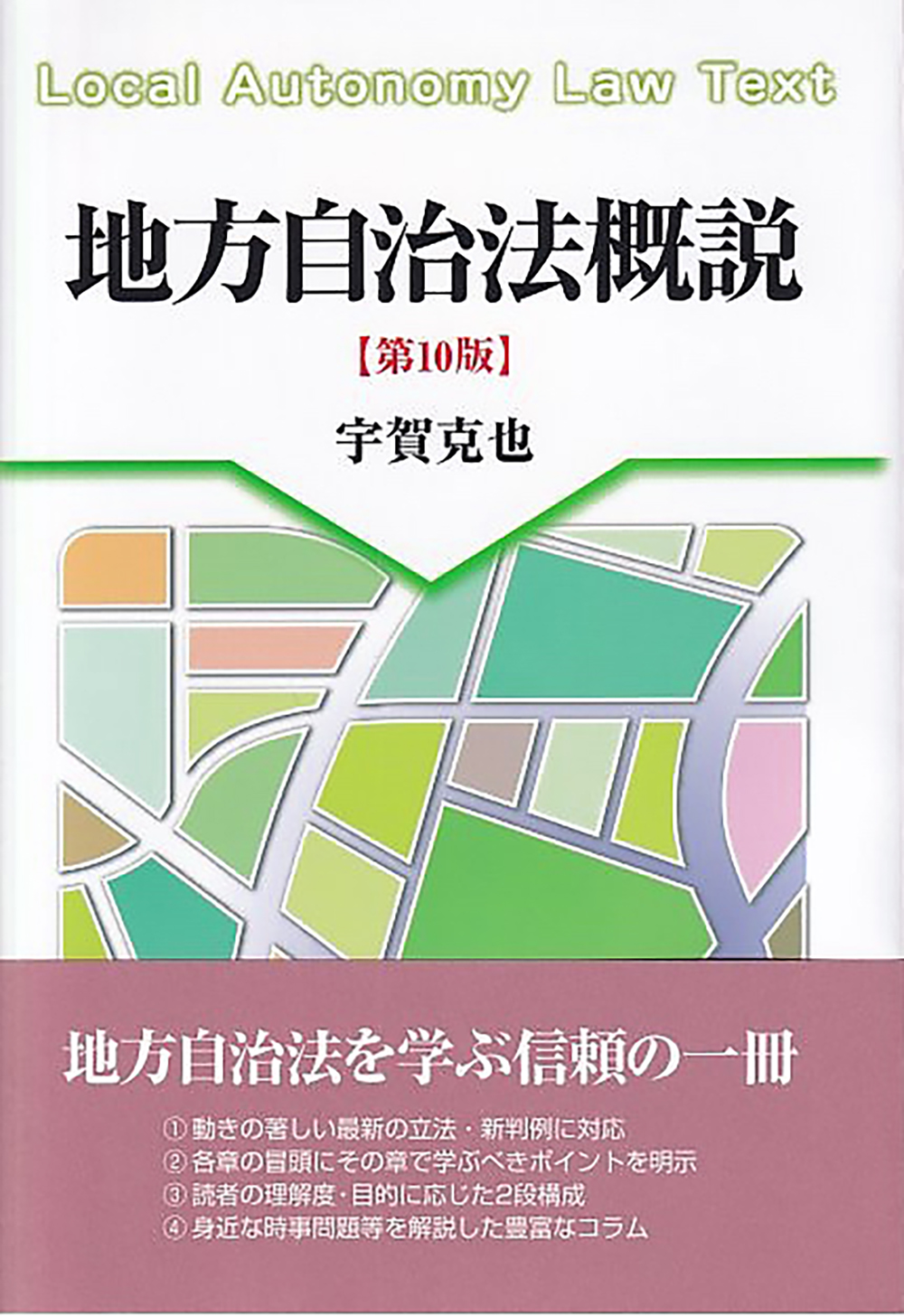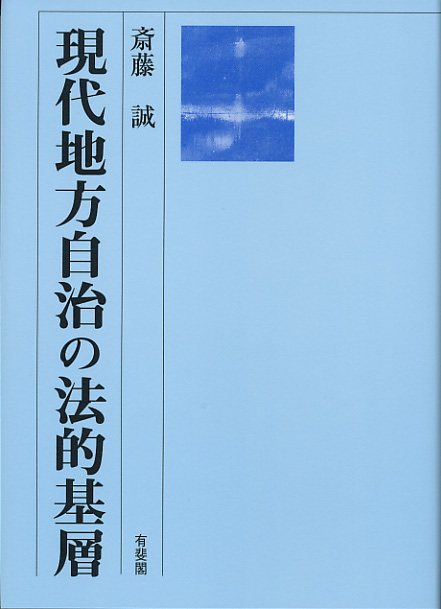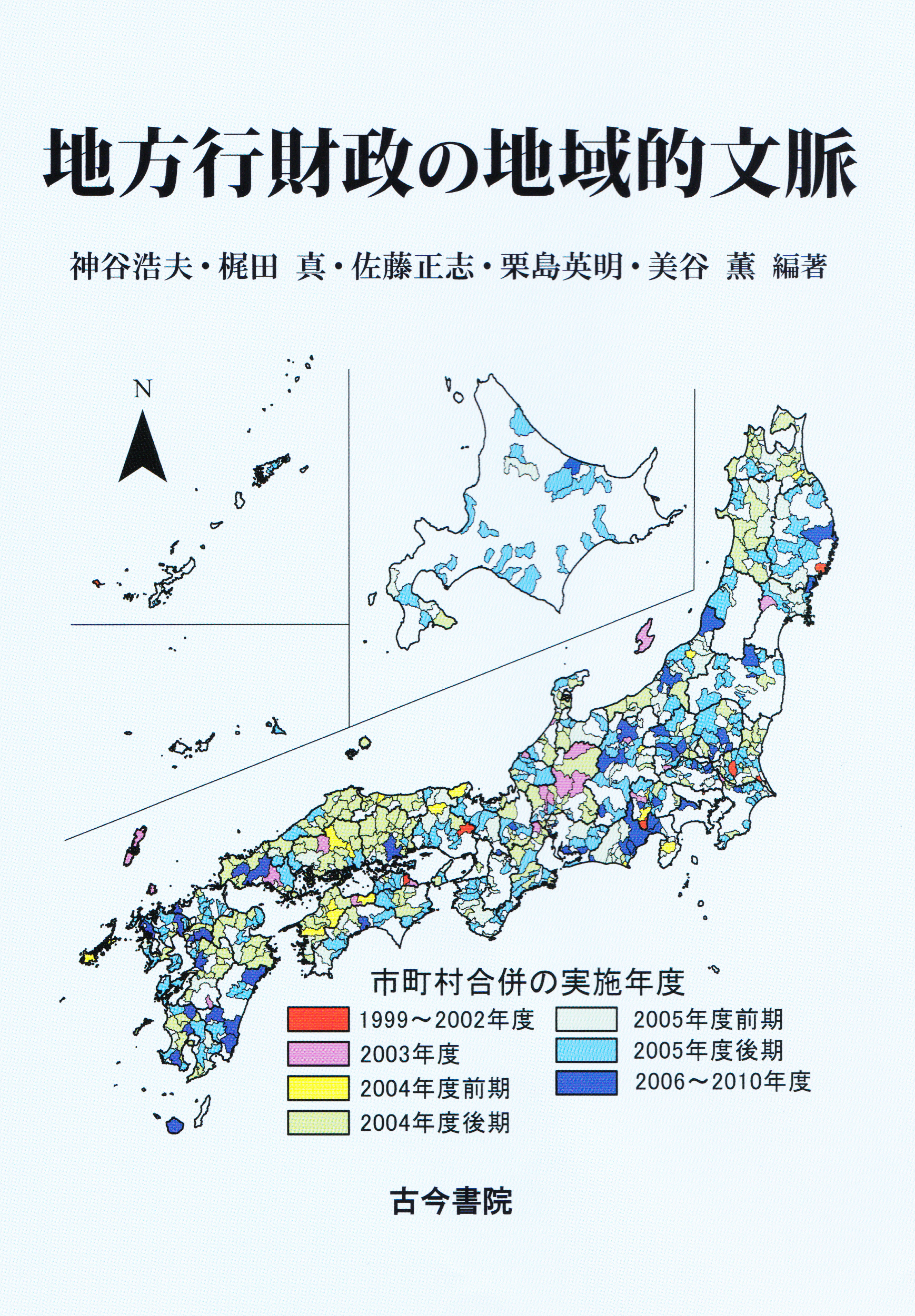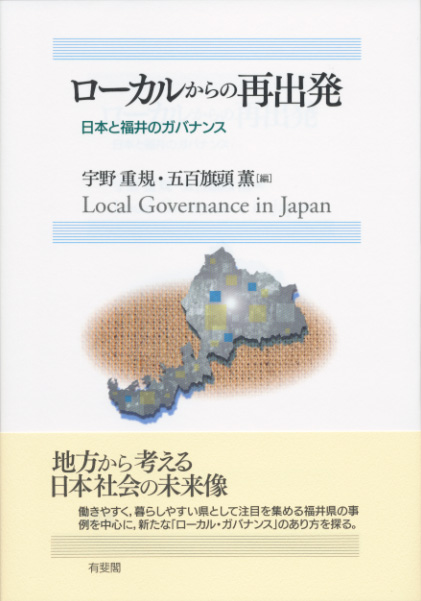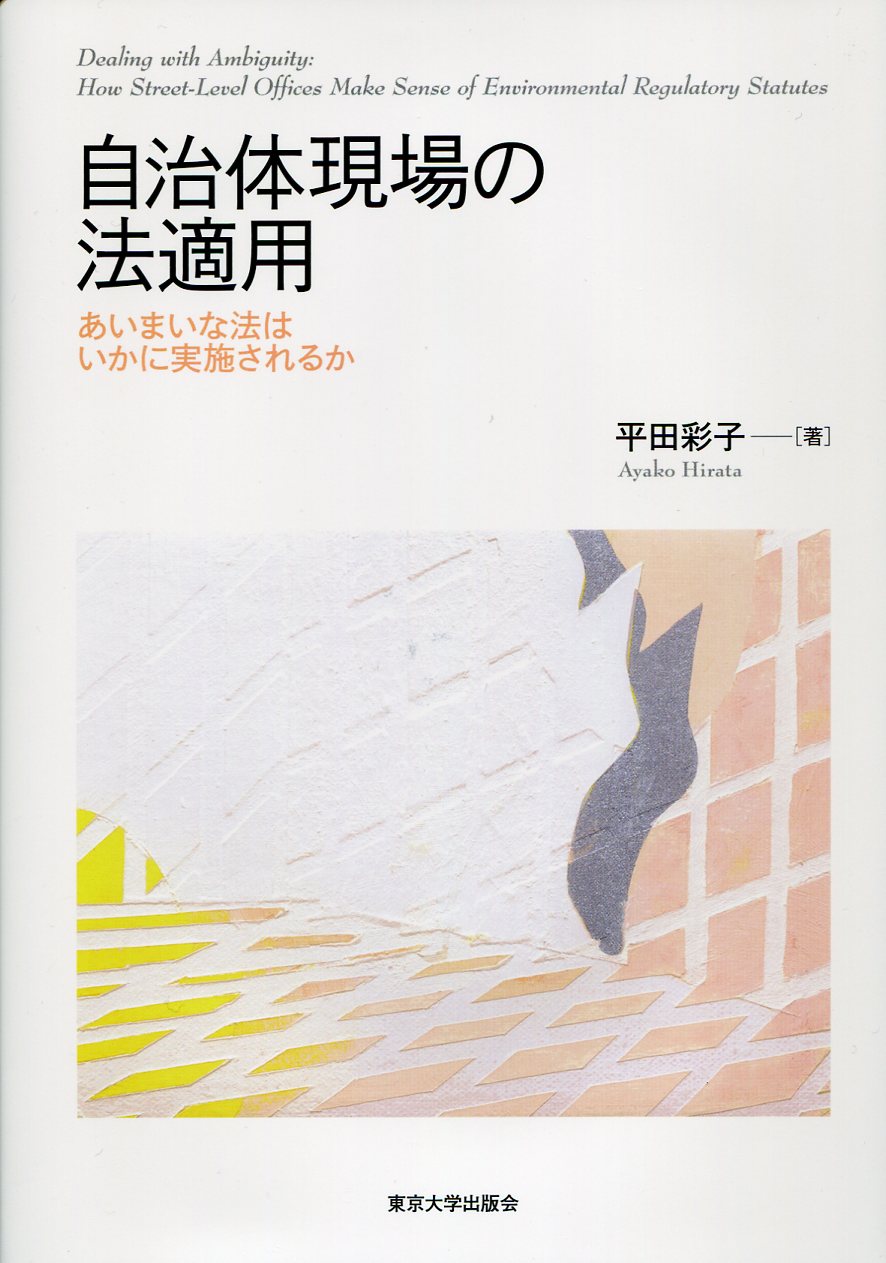
Title
Jichitai Genba no Ho-Tekiyo (Dealing with ambiguity - how street-level offices make sense of environmental regulatory statutes)
Size
240 pages, A5 format
Language
Japanese
Released
April 11, 2017
ISBN
978-4-13-036151-4
Published by
University of Tokyo Press
Book Info
See Book Availability at Library
Japanese Page
The language of laws is often written in general and abstract terms. How do local government officials, who actually administrate the law in the field, implement and enforce it in the face of various real-life cases? Of course, there are manuals and other documents, but they do not contain instructions for every possible case that may arise.
Using the idea of the inter-organizational linkage of inter-municipal networks as the core theoretical background, this book analyzes the mechanism of how local government officials in charge of implementing and enforcing laws understand, interpret, and concretize laws described in abstract terms, and how they attempt to justify their application decisions.
One may imagine that once a law is enacted, it is automatically applied, and legal effects are generated. In reality, the decision to apply a law is never that simple. While the law is described in general and abstract terms, the case before us is specific and individual, with its own background circumstances. What falls under the law and what does not, what is compliance and what is violation, what deserves the exercise of power such as an Administrative Order? These judgments are particularly tense issues that come before front-line officials immediately after the enactment of a law, when precedents have not yet been established.
How will the ambiguous law be embodied by local government departments in the field? This book approaches the question through both qualitative and quantitative empirical analysis: interviews with a total of 88 people, a questionnaire survey of all municipal departments, and a complementary observation stay at one municipal department. This book demonstrates the importance of informal networks among local government offices that enable them to apply the law consistently, which eventually shapes the meaning of law as well as bolsters the legitimacy of enforcement actions.
The book has received national and international awards (the 43rd Fujita Prize of the Goto-Yasuda Memorial Tokyo Metropolitan Research Institute and Adam Podogrezki Prize of the International Sociological Association, Research Committee on Sociology of Law). I imagine that the following points may have been those on which this book was highly evaluated.
The first point is the combination of theory and evidence. Theoretical analysis, particularly with regard to inter-municipal networks, relies on the theoretical model of organizational sociology and is connected to the analysis of empirical data. One of the characteristics of this book is that it attempts to construct a theory that aims at a more generalized understanding based on the results of the empirical analysis, rather than a style of telling facts with facts.
The second point is the presentation of two types of empirical data: interviews and a nation-wide questionnaire survey. The interview quotations reveal the real voices of local government officials, and unlike quantitative data that give a dry impression, they are full of rich reality and appeal to readers. Conducting the interviews was an excellent opportunity to directly approach the phenomena in which I was interested, and in fact, it was an extremely fulfilling and enjoyable time. I would like to thank all those who cooperated in this project again.
(Written by HIRATA Ayako, Associate Professor, Graduate Schools for Law and Politics / 2023)
Related Info
Adam Podogrezki Prize (ISA Research Committee on Sociology of Law 2018)



 Find a book
Find a book


 eBook
eBook